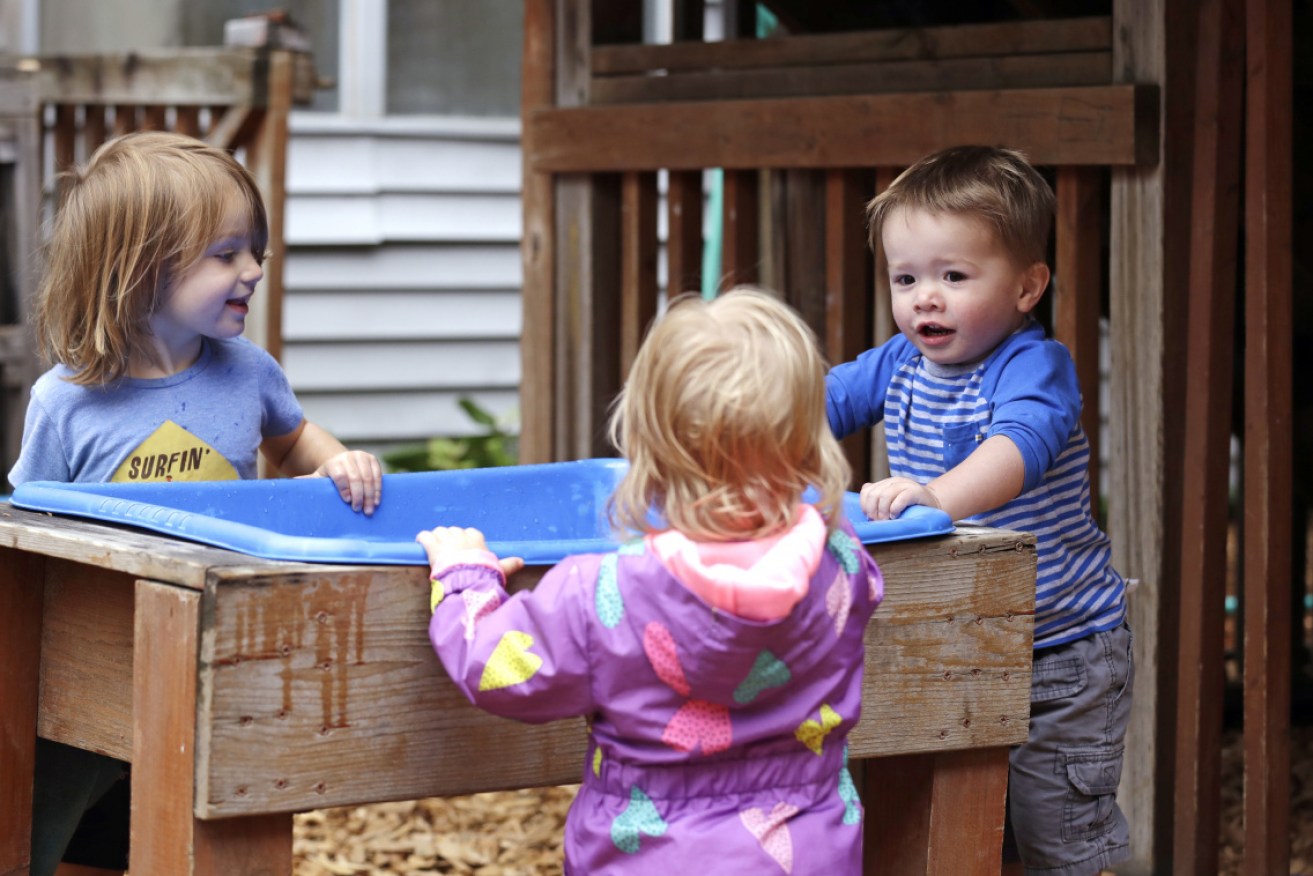Fuel, child care drive spike in inflation


The end of the federal government's free child-care program accounted for much of the annual spike. Photo: AAP
The annual rate of inflation has soared to 3.8 per cent following a jump in fuel prices.
The Australian Bureau of Statistics said the consumer price index rose 0.8 per cent in the June quarter.
“Rising fuel prices accounted for much of the increase in the June quarter CPI, with prices surpassing pre-pandemic levels,” ABS head of price statistics Michelle Marquardt said on Wednesday.
Fuel prices rose 6.5 per cent in the quarter, while there was also a 2.4 per cent increase in medical and hospital services, reflecting the annual increase in private health insurance premiums.
Electricity prices also rose 3.3 per cent due to the unwinding of West Australian pandemic relief payments.
Furnishings, household equipment and services were up 16.9 per cent, for the year – largely reflecting the end of free child care made available at the height of the pandemic.
The annual rate is well above the Reserve Bank of Australia’s 2-3 per cent inflation target.
But the central bank has been anticipating such a spike, which is also partly a response to 2020’s recession-related price slump.
The RBA expects inflation will be back below 2 per cent by the end of the year.
As such, RBA governor Philip Lowe won’t be reaching for his interest rate lever to stem the tide, being more concerned about the economic damage virus lockdowns have done.
EY chief economist Jo Masters said the data showed the pandemic was clearly still having a major effect on Australia’s economy.
“Childcare, domestic and international airfares, electricity, new dwelling purchase prices and restaurant meals were all impacted by policy, while fuel prices, new car prices, domestic travel accommodation and rents in Sydney and Melbourne reflect ongoing disruption,” she said.
“This data is for the June quarter, and clearly Australia’s economic prospects have since shifted dramatically.”
The NSW government has extended its lockdown by another month until August 28, putting further strain on the national economy.
Economists are already expecting the economy to contract in the September quarter as a result of the lengthy Sydney restrictions as well as expired snap lockdowns in Victoria and South Australia.
The Commonwealth Bank is forecasting a massive 2.7 per cent contraction, while the unemployment rate is expected to jump from 4.9 per cent to 5.6 per cent by October.
“It is the inevitable consequence of shutting down large parts of the economy,” CBA head of Australian economics Gareth Aird said.
He is not expecting any meaningful rebound in the economy until November, resulting in the December quarter only partially recovering by 1.9 per cent.
-with AAP








